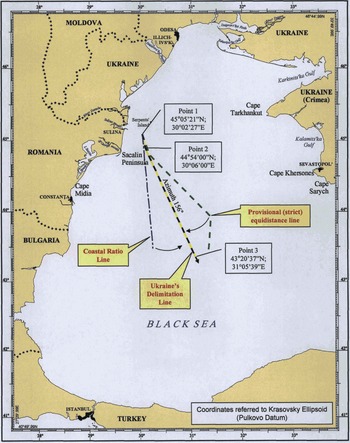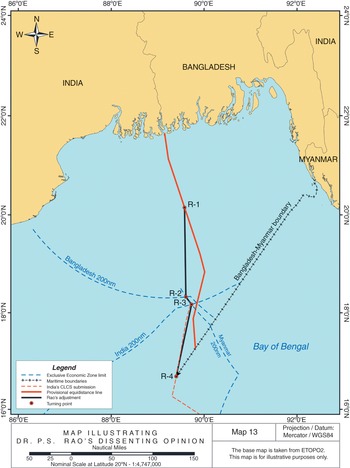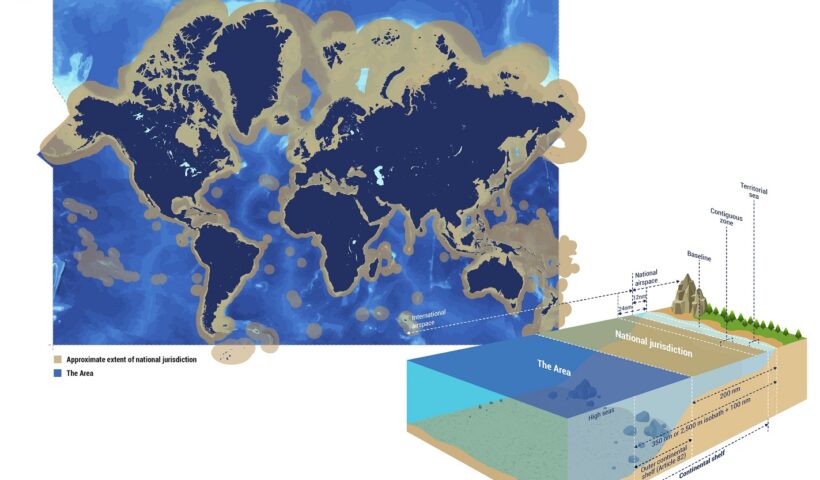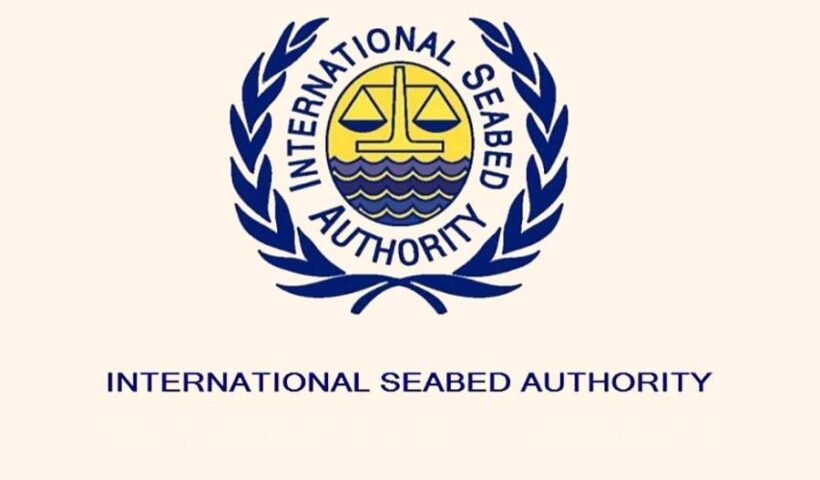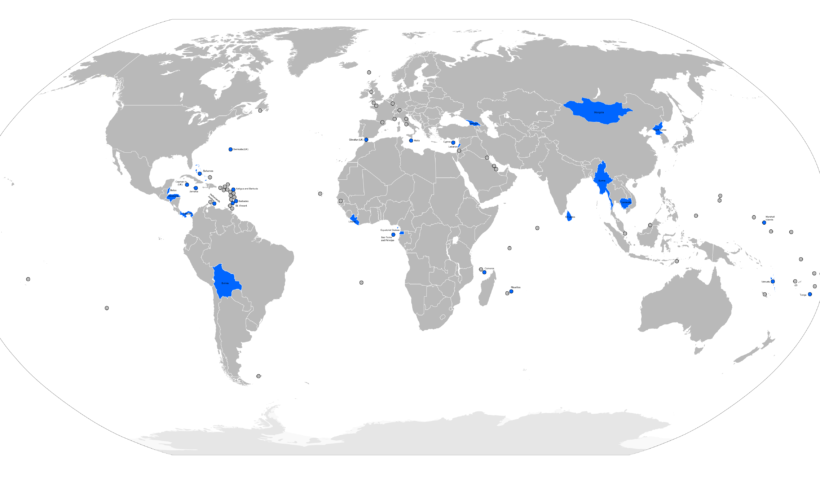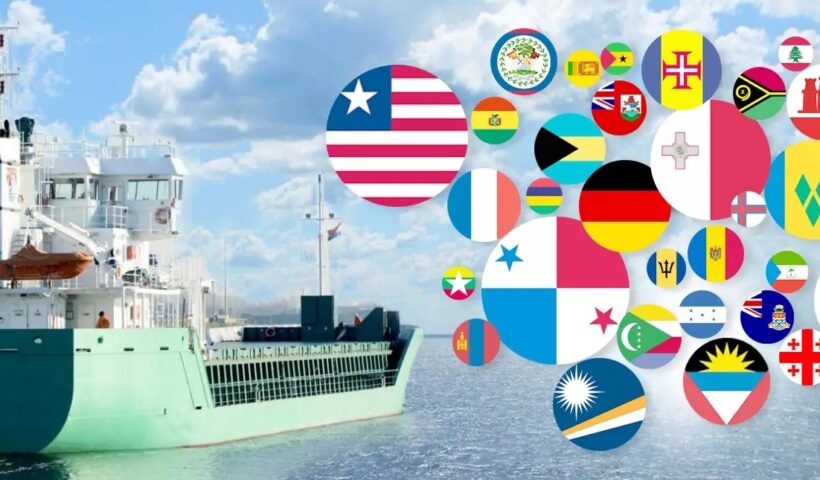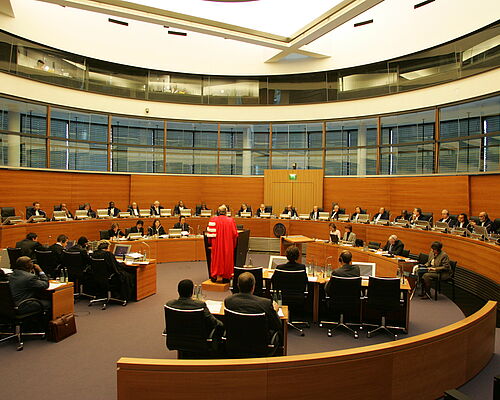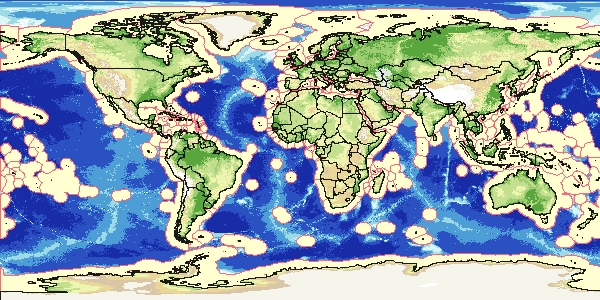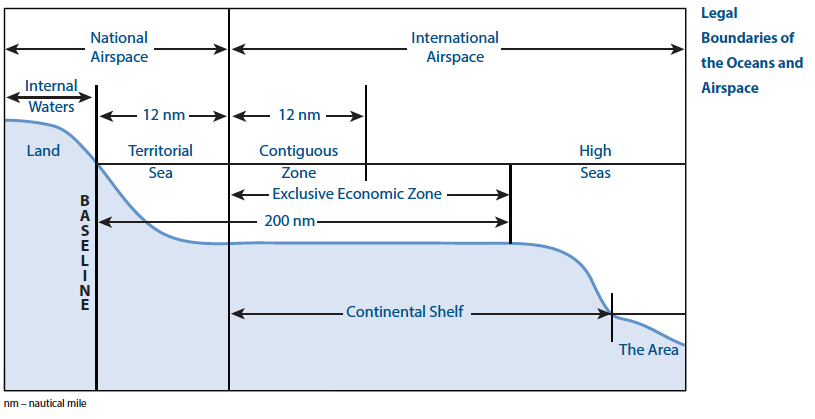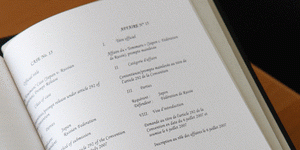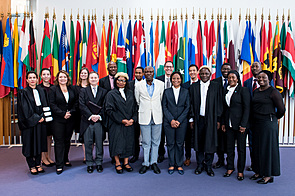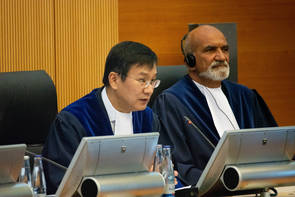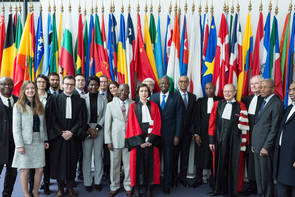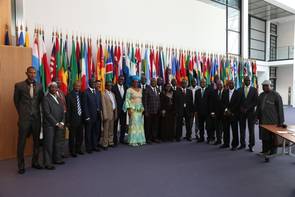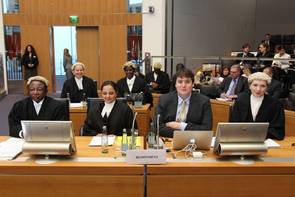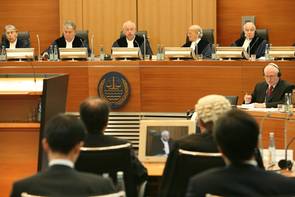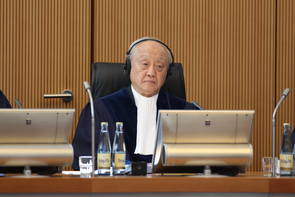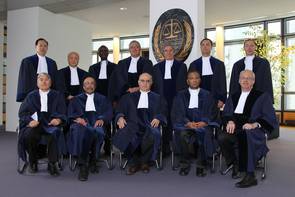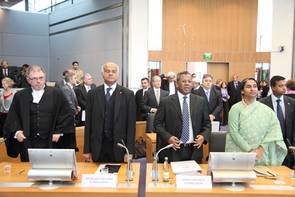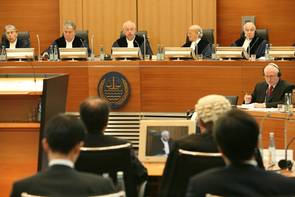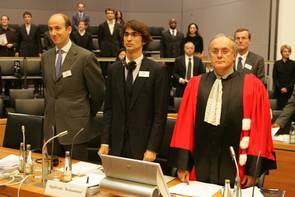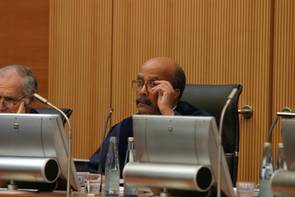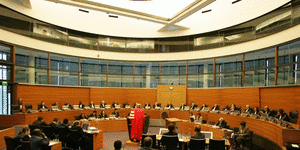Presence of Islands as a RELEVANT CIRCUMSTANCES in delimitation process in law of the sea and customary international law, 12-nautical-mile, Black Sea case, continental shelf, delimitation process, geographic realities, ICJ jurisprudence, ITLOS, maritime boundary, maritime delimitation, Nicaragua/ Colombia case, Nicaragua/Honduras case, Presence of Islands, Qatar/Bahrain case, relevant circumstances
View More Presence of Islands as a RELEVANT CIRCUMSTANCES in delimitation process in law of the sea and customary international lawTag: ITLOS
Proportionality as a RELEVANT CIRCUMSTANCES in delimitation process in law of the sea and customary international law
Proportionality as a RELEVANT CIRCUMSTANCES in delimitation process in law of the sea and customary international law, adjacent coasts, Anglo-French Continental Shelf case, delimitation process, Equitable Principles, existence of particular coastal configurations, ITLOS, maritime delimitation, North Sea Continental Shelf cases, Proportionality, quasi-equal length of the relevant coasts, relevant circumstances
View More Proportionality as a RELEVANT CIRCUMSTANCES in delimitation process in law of the sea and customary international lawConfiguration of Coasts as a RELEVANT CIRCUMSTANCES in delimitation process in law of the sea and customary international law
Configuration of Coasts as a RELEVANT CIRCUMSTANCES in delimitation process in law of the sea and customary international law, Bangladesh/India Arbitration, Bangladesh/Myanmar case, Configuration of Coasts, delimitation process, equidistance line, equidistance method, geographical factors, Guinea/ Guinea-Bissau case, ITLOS, Libya/Malta judgment, line grosso modo, macrogeography, manifestly concave, maritime delimitation, North Sea Continental Shelf cases, opposite and adjacent coasts, provisional equidistance line, relevant circumstances
View More Configuration of Coasts as a RELEVANT CIRCUMSTANCES in delimitation process in law of the sea and customary international lawObligations and Liability of Sponsoring States about seabed area in law of the sea and customary international law
Obligations and Liability of Sponsoring States about seabed area in law of the sea and customary international law, area, ITLOS, LOSC, obligation to apply a precautionary approach, obligation to apply best environmental practices, obligation to assist the Authority in the exercise of control over activities in the Area, obligation to cooperate with the Authority in the establishment and implementation of programmes for monitoring and evaluating the impacts of deep seabed mining on the marine environment, obligation to ensure the availability of recourse for compensation in respect of damage caused by pollution, obligation to take measures to ensure the provision of guarantees in the event of an emergency order by the Authority for protection of the marine environment, responsibility to ensure, seabed Area
View More Obligations and Liability of Sponsoring States about seabed area in law of the sea and customary international lawInternational Seabed Authority, its Jurisdiction, authorities and obligations in law of the sea and LOSC
The International Seabed Authority is an international organisation governing the Area and activities there. All States Parties to the LOSC are ipso facto members of the Authority. The Authority sits in Jamaica and comprises three principal organs, that is to say, an Assembly, a Council and a Secretariat. In addition, it has its operational organ, i.e. the Enterprise.
The Assembly, which consists of all the members of the Authority, is the supreme organ of the Authority to which the other principal organs shall be accountable as specifically provided for in the LOSC. The Assembly is entitled to establish general policies on any question or matter within the competence of the Authority.
The Council, which consists of thirty-six members of the Authority, is the executive organ of the Authority. Each member of the Council shall be elected for four years. The Council is empowered to establish the specific policies to be pursued by the Authority on any question or matter within the competence of the Authority.
The Secretariat of the Authority comprises a Secretary-General and such staff as the Authority may require. In the performance of their duties, the Secretary-General and the staff shall not seek or receive instructions from any government or from any other source external to the Authority. They shall refrain from any action which might reflect on their position as international officials responsible only to the Authority. In addition, the Secretary-General and the staff shall have no financial interest in any activity relating to exploration and exploitation in the Area. Those qualifications will contribute to secure the independence and neutrality of the Secretariat. International Seabed Authority, its Jurisdiction, authorities and obligations in law of the sea and LOSC, Cobalt-Rich Crusts Regulations, International Seabed Authority, ITLOS, Jamaica, LOSC, Polymetallic Nodules Regulations, seabed disputes chamber, the Sulphides Regulations
what is the meaning of Flags of Convenience or open registry in the law of the sea and customary international law?
While there is no generally agreed definition, ‘flag of convenience’ or ‘open registry’ States refer, in essence, to States that permit foreign shipowners, having very little or virtually no real connection with those States, to register their ships under the flags of those States.
The flag of convenience States allow shipowners to evade national taxation and to avoid the qualifications required of the crews of their ships. In so doing, flag of convenience States give shipowners an opportunity to reduce crew costs by employing inexpensive labour, while these States receive a registry fee and an annual fee. As one of the few variables in shipping costs is crew costs, a highly competitive market within the international shipping industry prompts shipowners to resort to open registry States. what is the meaning of Flags of Convenience or open registry in the law of the sea and customary international law?, archipelagic sea, archipelagic waters, Basel Convention on the Control of Transboundary Movements of Hazardous Wastes and their Disposal, COLREG, Convention on the International Regulations for Preventing Collisions at Sea, De iure praedae, De mare clausum, De mare liberum, freedom of navigation, IMO, International Convention for the Prevention of Pollution from Ships, International Convention for the Safety of Life at Sea, International Maritime Organization, international straits, maritime traffic, MARPOL, right of innocent passage, SOLAS, territorial sea, terrorism, United Nations Convention on the Law of the Sea
the meaning of The Nationality of a Ship and flag states on the law of the sea and customary international law
The flag State jurisdiction is exercised on the basis of the nationality of a ship. Thus, the nationality of a ship is of central importance in order to establish the juridical link between a State and a ship flying its flag. Under international law, each State is entitled to determine conditions for the grant of its nationality to ships. In the M/V ‘Saiga’ case, ITLOS ruled:
Determination of the criteria and establishment of the procedures for granting and withdrawing nationality to ships are matters within the exclusive jurisdiction of the flag State. the meaning of The Nationality of a Ship and flag states on the law of the sea and customary international law, flag State jurisdiction, flag states, Grand Prince case, ITLOS, LOSC, Nationality of a Ship, Tomimaru case, UN Convention on Conditions for Registration of Ships
ITLOS and its structure, duties, Composition,jurisdiction, competence and authorities
ITLOS and its structure, duties, Composition,jurisdiction, competence and authorities, International Tribunal for the Law of the Sea, ITLOS, United Nations Convention on the Law of the Sea
View More ITLOS and its structure, duties, Composition,jurisdiction, competence and authoritiesJurisdiction of Coastal States Over the EEZ, based on law of the sea, customary international law and LOSC
Jurisdiction of Coastal States Over the EEZ, based on law of the sea, customary international law and LOSC, artificial islands, EEZ, exclusive economic zone, IMO, ITLOS, LOSC
View More Jurisdiction of Coastal States Over the EEZ, based on law of the sea, customary international law and LOSCLegal Status of the EEZ at LOSC, law of the sea and customary international law
In short, unlike territorial sovereignty, the sovereign rights of the coastal State over the EEZ lack comprehensiveness of material scope. With respect to matters accepted by international law, however, the coastal State can exercise both legislative and enforcement jurisdiction over all people within the EEZ in an exclusive manner. The essential point is that the rights of the coastal State over the EEZ are spatial in the sense that they can be exercised solely within the particular space in question regardless of the nationality of persons or vessels. Thus the coastal State jurisdiction over the EEZ can be regarded as a spatial jurisdiction. Due to the lack of comprehensiveness of material scope, this jurisdiction should be called a limited spatial jurisdiction.. Legal Status of the EEZ at LOSC, law of the sea and customary international law, coastal State, EEZ, ITLOS, Legal Status of the EEZ, limitation ratione materiae, LOSC, ratione materiae, ratione personae, Sovereign Rights Over the EEZ
View More Legal Status of the EEZ at LOSC, law of the sea and customary international lawDispute concerning delimitation of the maritime boundary between Mauritius and Maldives in the Indian Ocean (Mauritius/Maldives)
Dispute concerning delimitation of the maritime boundary between Mauritius and Maldives in the Indian Ocean (Mauritius/Maldives
View More Dispute concerning delimitation of the maritime boundary between Mauritius and Maldives in the Indian Ocean (Mauritius/Maldives)The M/T “San Padre Pio” Case (Switzerland v. Nigeria), Provisional Measures
The M/T “San Padre Pio” Case (Switzerland v. Nigeria), Provisional Measures,
View More The M/T “San Padre Pio” Case (Switzerland v. Nigeria), Provisional MeasuresThe M/V “Norstar” Case (Panama v. Italy)
On 17 December 2015, Panama filed an Application with the Tribunal dated 16 November 2015 instituting proceedings against Italy in a dispute between the two States concerning the interpretation and application of the Convention “in connection with the arrest and detention by Italy of M/V Norstar, an oil tanker registered under the flag of Panama”. The case was entered in the list of cases of the Tribunal as Case No. 25.
View More The M/V “Norstar” Case (Panama v. Italy)Dispute Concerning Delimitation of the Maritime Boundary between Ghana and Côte d’Ivoire in the Atlantic Ocean (Ghana/Côte d’Ivoire)
During consultations held by the President of the Tribunal with representatives of Ghana and Côte d’Ivoire on 2 and 3 December 2014, a special agreement was concluded between the two States on 3 December 2014 to submit the dispute concerning the delimitation of their maritime boundary in the Atlantic Ocean to a special chamber of the Tribunal to be formed pursuant to article 15, paragraph 2, of the Statute. An original copy of the special agreement was delivered to the Registry on 3 December 2014, which constituted the notification required under article 55 of the Rules. The case was entered in the Tribunal’s list of cases as Case No. 23.
View More Dispute Concerning Delimitation of the Maritime Boundary between Ghana and Côte d’Ivoire in the Atlantic Ocean (Ghana/Côte d’Ivoire)The Arctic Sunrise Case (Kingdom of the Netherlands v. Russian Federation), Provisional Measures
On 4 October 2013, the Netherlands instituted arbitral proceedings, under annex VII to the Convention, against the Russian Federation in a dispute concerning the “boarding and detention of the vessel Arctic Sunrise in the exclusive economic zone of the Russian Federation and the detention of the persons on board the vessel by the authorities of the Russian Federation”.
View More The Arctic Sunrise Case (Kingdom of the Netherlands v. Russian Federation), Provisional MeasuresRequest for an advisory opinion submitted by the Sub-Regional Fisheries Commission (SRFC)
The Sub-Regional Fisheries Commission is a regional fisheries organization composed of seven member States: Cabo Verde, Gambia, Guinea, Guinea-Bissau, Mauritania, Senegal and Sierra Leone. During its fourteenth session (27-28 March 2013), the Conference of Ministers of the Sub-Regional Fisheries Commission adopted a resolution by which it decided, in accordance with article 33 of the Convention on the Determination of the Minimal Conditions for Access and Exploitation of Marine Resources within the Maritime Areas under Jurisdiction of the Member States of the Sub-Regional Fisheries Commission, of 2012, to authorize the Permanent Secretary of the Commission to seize the Tribunal in order to obtain its advisory opinion on the following matters:
View More Request for an advisory opinion submitted by the Sub-Regional Fisheries Commission (SRFC)The “ARA Libertad” Case (Argentina v. Ghana)
On 14 November 2012, Argentina filed with the Tribunal a request for the prescription of provisional measures under article 290, paragraph 5, of the Convention in a dispute concerning “the detention by Ghana […] of the warship ‘ARA Fragata Libertad’”. The case was entered into the Tribunal’s list of cases as Case No. 20.
View More The “ARA Libertad” Case (Argentina v. Ghana)The M/V “Virginia G” Case (Panama/Guinea-Bissau)
On 4 July 2011, proceedings were instituted before the Tribunal through the notification of a special agreement in a dispute concerning the vessel Virginia G. By a letter dated 4 July 2011, the Agent of Panama notified the Tribunal of a special agreement concluded by exchange of notes, dated 29 June and 4 July 2011, between the Republic of Panama and the Republic of Guinea-Bissau, respectively, to submit to the Tribunal a dispute concerning the vessel Virginia G. The case was entered in the list of cases as Case No. 19.
View More The M/V “Virginia G” Case (Panama/Guinea-Bissau)The M/V “Louisa” Case (Saint Vincent and the Grenadines v. Kingdom of Spain)
On 24 November 2010, Saint Vincent and the Grenadines instituted proceedings before the Tribunal against Spain in a dispute concerning the arrest of the M/V Louisa. The Application instituting proceedings included a request for the prescription of provisional measures under article 290, paragraph 1, of the Convention. The case was entered in the Tribunal’s list of cases as Case No. 18.
View More The M/V “Louisa” Case (Saint Vincent and the Grenadines v. Kingdom of Spain)Responsibilities and obligations of States sponsoring persons and entities with respect to activities in the Area (Request for Advisory Opinion submitted to the Seabed Disputes Chamber)
On 6 May 2010, the Council of the International Seabed Authority adopted decision ISBA/16/C/13, in which, in accordance with article 191 of the Convention, it requested the Seabed Disputes Chamber of the Tribunal to render an advisory opinion on the following questions: What are the legal responsibilities and obligations of States parties to the Convention with respect to the sponsorship of activities in the Area in accordance with the Convention, in particular part XI, and the 1994 Agreement relating to the Implementation of Part XI of the United Nations Convention on the Law of the Sea of 10 December 1982?
What is the extent of liability of a State party for any failure to comply with the provisions of the Convention, in particular part XI, and the 1994 Agreement, by an entity whom it has sponsored under article 153, paragraph 2(b), of the Convention?
What are the necessary and appropriate measures that a sponsoring State must take in order to fulfil its responsibility under the Convention, in particular article 139 and annex III, and the 1994 Agreement?
Dispute concerning delimitation of the maritime boundary between Bangladesh and Myanmar in the Bay of Bengal (Bangladesh/Myanmar)
On 14 December 2009, proceedings were instituted before the Tribunal in relation to the delimitation of the maritime boundary in the Bay of Bengal between Bangladesh and Myanmar.
View More Dispute concerning delimitation of the maritime boundary between Bangladesh and Myanmar in the Bay of Bengal (Bangladesh/Myanmar)The “Hoshinmaru” Case (Japan v. Russian Federation), Prompt Release
On 6 July 2007, an Application under article 292 of the Convention was filed by Japan against the Russian Federation concerning the release of the fishing vessel Hoshinmaru and its crew. The Application was entered in the list of cases as Case No. 14.
View More The “Hoshinmaru” Case (Japan v. Russian Federation), Prompt ReleaseThe “Juno Trader” Case (Saint Vincent and the Grenadines v. Guinea-Bissau), Prompt Release
On 18 November 2004, an Application under article 292 of the Convention was filed on behalf of Saint Vincent and the Grenadines against Guinea-Bissau for the release of the vessel Juno Trader, flying the flag of Saint Vincent and the Grenadines, and its crew. The Application was entered in the list of cases as Case No. 13.
View More The “Juno Trader” Case (Saint Vincent and the Grenadines v. Guinea-Bissau), Prompt ReleaseCase concerning Land Reclamation by Singapore in and around the Straits of Johor (Malaysia v. Singapore), Provisional Measures
On 5 September 2003, a Request for the prescription of provisional measures, pending the constitution of an arbitral tribunal under Annex VII to the Convention, was filed with the Registry of the Tribunal by Malaysia pursuant to article 290, paragraph 5, of the Convention in a dispute concerning land reclamation by Singapore in and around the Straits of Johor. The Request was accompanied by a copy of a document dated 4 July 2003, instituting arbitral proceedings against Singapore. The Request was entered in the list of cases as Case No. 12.
View More Case concerning Land Reclamation by Singapore in and around the Straits of Johor (Malaysia v. Singapore), Provisional MeasuresThe “Volga” Case (Russian Federation v. Australia), Prompt Release
On 2 December 2002, an Application under article 292 of the Convention was filed by the Russian Federation against Australia for the release of the vessel Volga, flying the flag of the Russian Federation. The Application was entered in the list of cases as Case No. 11.
View More The “Volga” Case (Russian Federation v. Australia), Prompt ReleaseThe “Chaisiri Reefer 2” Case (Panama v. Yemen), Prompt Release
On 3 July 2001, an Application under article 292 of the Convention was filed on behalf of Panama against Yemen for the prompt release of the Chaisiri Reefer 2, a vessel flying the flag of Panama, its cargo and crew. The case was entered in the list of cases as Case No. 9.
View More The “Chaisiri Reefer 2” Case (Panama v. Yemen), Prompt ReleaseThe “Grand Prince” Case (Belize v. France), Prompt Release
On 21 March 2001, an Application under article 292 of the Convention was filed on behalf of Belize against France for the prompt release of the fishing vessel Grand Prince, flying the flag of Belize. The case was entered in the list of cases as Case No. 8.
View More The “Grand Prince” Case (Belize v. France), Prompt ReleaseCase concerning the Conservation and Sustainable Exploitation of Swordfish Stocks in the South-Eastern Pacific Ocean (Chile/European Union)
By an exchange of letters dated 18 and 19 December 2000, Chile and the European Community agreed to submit a dispute concerning the conservation and sustainable exploitation of swordfish stocks in the South-Eastern Pacific Ocean to a special chamber of the Tribunal to be formed in accordance with article 15, paragraph 2, of the Statute.By Order dated 20 December 2000, the Tribunal decided to accede to the request of the parties to form a special chamber to deal with the case and determined the composition of the Special Chamber with their approval. The composition of the Special Chamber was as follows: President: P. Chandrasekhara Rao, Members: Judge Hugo Caminos, Judge Alexander Yankov, Judge Rüdiger Wolfrum and Judge ad hoc Francisco Orrego Vicuña. By the same Order, the Tribunal made provision in respect of preliminary objections and for the filing of the written pleadings. The case was entered in the list of cases as Case No. 7.
View More Case concerning the Conservation and Sustainable Exploitation of Swordfish Stocks in the South-Eastern Pacific Ocean (Chile/European Union)The “Monte Confurco” Case (Seychelles v. France), Prompt Release
On 27 November 2000, an Application under article 292 of the Convention was filed on behalf of Seychelles against France concerning the release of the fishing vessel Monte Confurco, flying the flag of Seychelles, and its Master. The case was entered in the list of cases as Case No. 6.
View More The “Monte Confurco” Case (Seychelles v. France), Prompt ReleaseThe “Camouco” Case (Panama v. France), Prompt Release
On 17 January 2000, an Application under article 292 of the Convention was filed on behalf of Panama against France for the prompt release of the Camouco, a fishing vessel flying the Panamanian flag, and its Master. The case was entered in the list of cases as Case No. 5.
View More The “Camouco” Case (Panama v. France), Prompt ReleaseInternational Tribunal for the Law of the Sea (what and where?)
The International Tribunal for the Law of the Sea is an independent judicial body established by the United Nations Convention on the Law of the Sea to adjudicate disputes arising out of the interpretation and application of the Convention. The Tribunal is composed of 21 independent members, elected from among persons enjoying the highest reputation for fairness and integrity and of recognized competence in the field of the law of the sea.
View More International Tribunal for the Law of the Sea (what and where?)
